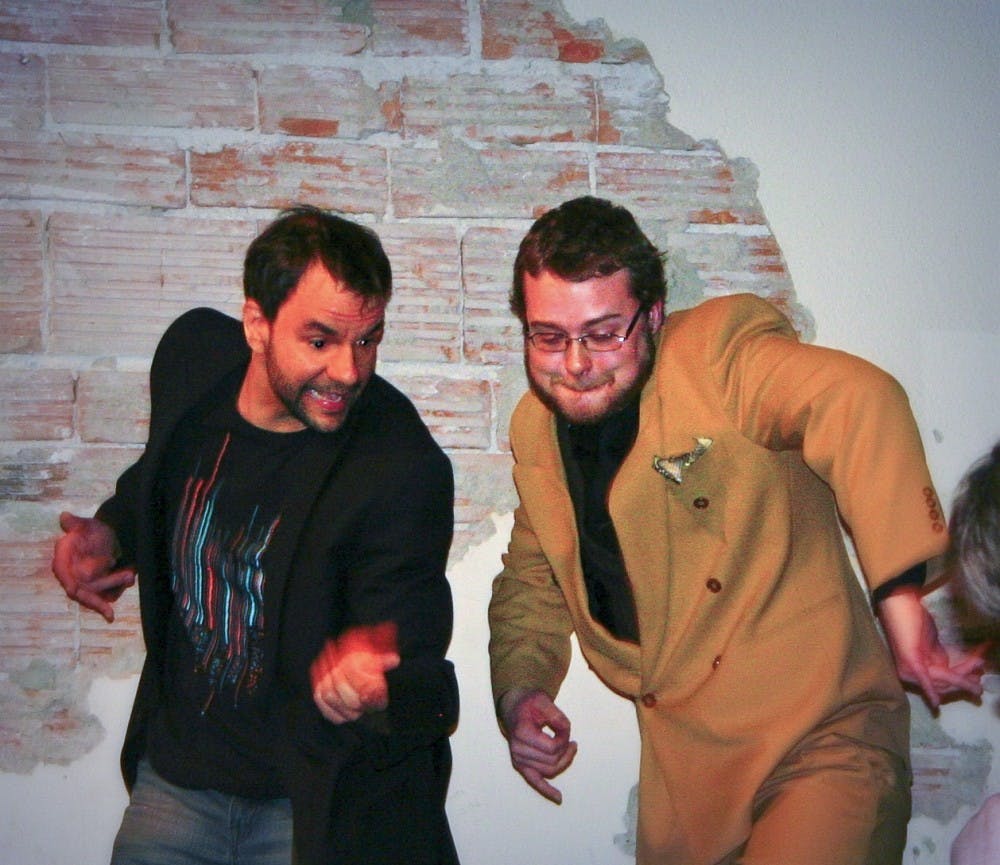culture@dailylobo.com
My introduction to improv came with the American version of “Whose Line is It Anyway?” a show that was so mind-blowingly funny to my small childhood brain at the time, it seemed beyond reproach. Ryan Stiles, Colin Mochrie, and Wayne Brady (and a fourth whom I never really liked as much) seemed the gods of comedy with limitless potential and skill.
Simple things fascinated me, like, “How could they rhyme so quickly?” “How can they make it so funny from nothing?” “Is Colin really OK with all the bald jokes?” It was truly mesmerizing. And not just because of easy jokes such as “because of the blinding light bouncing off of Colin’s head.”
As I grew, so did my love for comedy. Other forms of improvisation came into my life, such as playing saxophone with an early middle-school semblance of a band, or my discovery of hip-hop in high school, in which freestyling was largely encouraged by many of my friends.
Performing in theater in high school, I watched many examples of “short-form comedy improv,” the more technical term for the games I had first seen on Whose Line. I felt my successes, which usually took place at huge festivals, were few and far between and I volunteered very little. Bad improv is just as painful for the audience as it is for the performers. Acting in a play was one thing, as I could take nervous energy and focus to create characters and timing like I’d learned and loved from Monty Python, Charlie Chaplin, Peter Sellers and movies with talking animals. But bad improv is like the class clown who tries too hard and never shuts up. What a terrible place for someone who just thinks the world is funny.
But as it turns out, improv’s really not that bad. And it’s a helluva lot of a fun.
My love for character, irreverence and comic timing is all I’ve really needed to take part in the art my comedy heroes wowed me with all those years ago. A passionate, years-long love affair with pen-and-paper role-playing probably hasn’t hurt either.
When I started, I had no set rules for doing comedic improv, just like when I started writing theater reviews, The only rule I vaguely remembered was the “Never say no” or “Yes, and…” as the Golden Rule of Improv, which means that when you’re performing with one or more other people, you let the scene build.
When your partner makes a suggestion such as “Oh no, masked bandits!” you’re supposed to interact with that choice, saying something like, “I’ve never seen bandits so small!” or “And they’ve brought elephants!” or perhaps “We’ve got to fight them off, but all I have are root vegetables.” Saying “yes” isn’t always literal, of course. By responding with “Those are just my family members! We look strange in the summertime,” you’re technically contradicting your partner, but you’re still building on the scene.
Instinct and analysis have been the best tools for most creative endeavors in my life, which have spilled into communication and cooperation with various partners in crime. An afterward analysis of how and why things are funny is an intriguing exercise, though it still requires comedic instinct, which is difficult — if not impossible — to teach. But great partnerships are born when you can interact with others to produce comedic chemistry.
The other members of my improv group “Stump” help make it something better than what it is. Unique senses of comedy and style seethe under the open exchange of ideas and, most importantly, the making of connections; and expectations are both made and broken.
In a structured comedy improv game, you’ll have rules or limits by which you must construct your scene. The rules are seeded with random information, such as a location, relationship, or often just silly words you need in incorporate in the dialogue. That’s when you begin to make connections. If you’re on a beach, what can you do there? What plays for — as well as against — what is anticipated? If you’re cellmates, where does your mind go? Escape, shivs, Shawshank, maybe the darker parts of prison life? What your partner provides is important for jumping off and continuing to build scenes.
Get content from The Daily Lobo delivered to your inbox
Improv is all just playing pretend at its purest form. Except not everyone always has those invincible force fields of comedic genius.






